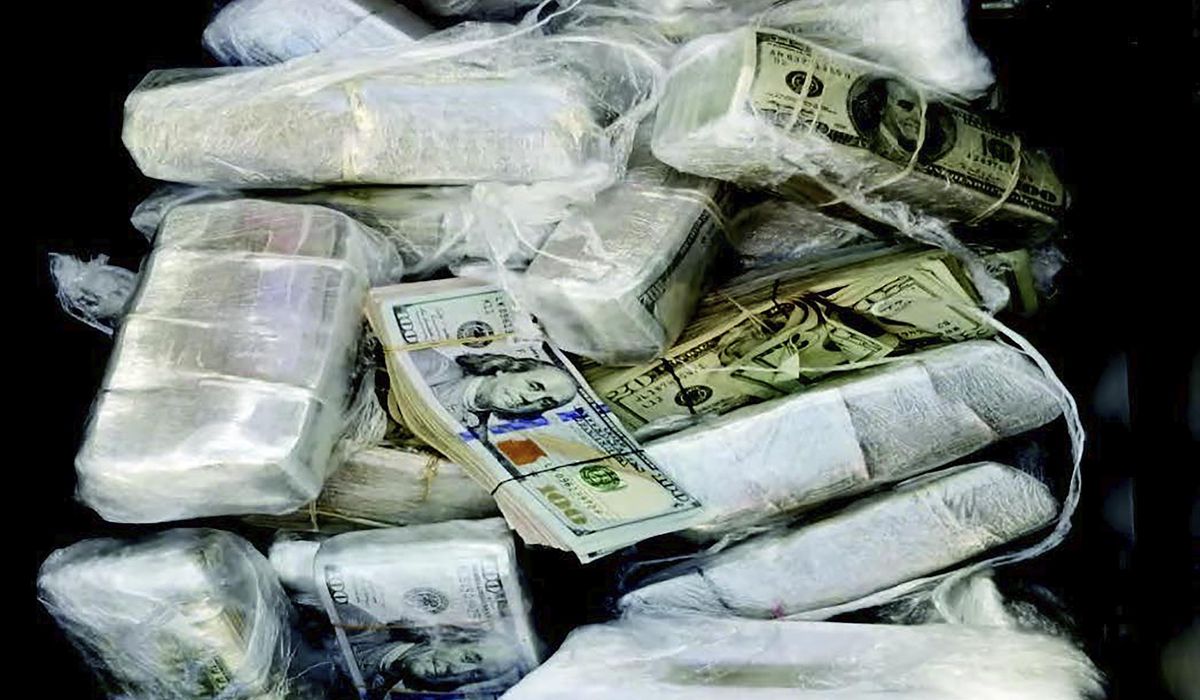


China’s ongoing shadow war with the U.S. involves cleaning drug money for Mexican cartels so the gangs can fuel the deadly overdose epidemic and sow discord in America’s institutions, according to an analyst who spoke with The Washington Times.
Beijing’s silent partnership with the Sinaloa Cartel came into focus last week when federal prosecutors said a California-based money laundering scheme had wealthy Chinese nationals exchanging currency to conceal the criminal organization’s drug profits.
Prosecutors said they had no evidence the Chinese nationals knew they were cleaning dirty money, but one former federal agent questioned how China — which aggressively surveils its citizens at home and abroad — could be in the dark about the tens of millions of dollars moved by the operation.
The U.S.’s top geopolitical rival tacitly approves of its relationship with the cartels, the official said, because it erodes America from within.
“The Chinese basically are stirring the pot to keep America addicted … keep them divided,” Michael Brown, a former special agent with the Drug Enforcement Administration and now the global director for counternarcotics technology at Rigaku Analytical Devices, told The Washington Times.
“It’s part of a larger strategy, I believe on the part of China, to weaken American ethics, morality and their ability to push back,” he continued.
Mr. Brown called China’s support for the cartel one of its “nonaggressive attacks” on the U.S.
Spying on military bases, stealing intellectual properties and encouraging cyber hacks are all various pseudo-offensives launched by Beijing to chip away at U.S. sovereignty, the former agent said.
But few of those have been as corrosive to Americans’ peace of mind as the Sinaloa Cartel’s expansive fentanyl trade.
Fentanyl, which is about 50 times more potent than heroin, is pegged as the main culprit in a spike in overdose deaths that first took hold during the COVID-19 pandemic.
Data from the Centers for Disease Control and Prevention shows drug overdoses skyrocketed from around 75,000 per year in spring 2020 until stabilizing at over 100,000 per year by the summer of 2021, where it has remained since.
The Biden administration’s lax border policies with Mexico have been a boon for the drug trade as well. U.S. Customs and Border Protection said 27,000 pounds of fentanyl were seized during fiscal year 2023, which is more than the previous two fiscal years combined.
The Sinaloa Cartel buys the chemicals it needs to make fentanyl from China, with state-level support for providing the drug’s ingredients to other countries.
A congressional report released this spring accused the Chinese Communist Party of offering tax rebates to companies that manufacture the chemicals — as long as those same companies sell those chemicals outside of China.
Federal prosecutors said the suspects in the Los Angeles-based money laundering ring used some of over $50 million in cartel cash it processed to buy those precursor chemicals.
Martin Estrada, the U.S. attorney for the Central District of California, told the Los Angeles Times that American brokers would instruct the Chinese nationals to send money to Chinese companies that made clothing, electronics, or in some cases, the chemicals needed to make the powerful opioids.
The consumer goods were shipped and sold in Mexico, where Sinaloa representatives collected their now legitimized drug money in pesos.
But Mr. Estrada said the chemicals shipped to Mexico went right into cartel hands, allowing the gang to make more fentanyl and methamphetamine and strengthen its drug empire on American soil.
Prosecutors said the Chinese nationals involved were working around the CCP’s restrictions on foreign investments.
China doesn’t allow its citizens to invest more than $50,000 per year overseas, so they hire the brokers to help them make investments and finance real estate buys. But Mr. Estrada told the newspaper that the large amount of cash the brokers had on hand should have raised suspicion.
The U.S. Attorney’s office said two dozen people were charged in the money laundering ring that ran from 2019-23
Mr. Brown, the former DEA agent, said cooperation with other agencies, such as the IRS and the Treasury Department, could go a long way in rooting out illicit cash flows coming from American-based businesses with ties to China.
But he added that federal partners are “working in silos,” and he said law enforcement is especially wary about sharing intelligence-gathering methods that could come up during the discovery phase of a trial.
As higher levels of government figure out how to stop the fentanyl crisis, local communities are left to deal with its wreckage.
Cartel influence has spread to the Mountain West in recent years as the gangs and their surrogates realized there are big profits in the less populated states of Montana and the Dakotas.
“They can make the most money selling pills here,” Chip White, the head of drug enforcement for the Mandan, Hidatsa and Arikara Nation in central North Dakota, told The Times. “Pills will sell anywhere from $80 to $100 a pill, when they can get them where they’re from for a couple bucks.”
The DEA said this spring that nearly all fentanyl in the U.S. comes from either the Sinaloa Cartel or its rival, the Jalisco New Generation Cartel.
• Matt Delaney can be reached at mdelaney@washingtontimes.com.
